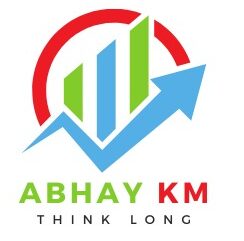
Important Note: This plan is a guideline. Actual returns and market conditions can vary. It’s crucial to consult with a qualified financial advisor for personalized advice.
Understanding the scenario: Husband and Wife earning 12L per annum, considering tax liability under new regime 2025
- Date of Birth: 01/07/1995
- Age: 30 years old
- Combined Annual Income: ₹24 Lakhs (₹12 Lakhs + ₹12 Lakhs)
- Tax Regime: Indian Tax Policies (We’ll assume the new regime for simplicity, but will also point out options for old regime)
Financial Goals and Timeline:
- Car (₹6 Lakhs): 5 years (2029)
- Home (₹1 Crore): 9 years (2033)
- Vacation (₹2.5 Lakhs): Every 3 years (2027, 2030, 2033, etc.)
- Child Education (₹25 Lakhs): 16 years (2040)
- Retirement (₹5 Crore): 30 years (2055)
Investment Strategy:
We’ll use a diversified approach, combining:
- Equity (for long-term growth)
- Debt (for stability and short-term goals)
- Tax-saving instruments
Assumptions:
- Average annual inflation: 6%
- Average equity returns: 12%
- Average debt returns: 7%
- Average increase in salary 5% per year.
Detailed Plan:
1. Current Financial Situation:
- Annual Income: ₹24 Lakhs
- Monthly Income: 2 Lakhs
- We will assume 50% savings rate for investment. Monthly savings 1 lakh.
2. Tax Planning (New Tax Regime):
- The new tax regime offers lower tax rates but eliminates most deductions.
- However Section 80CCD(2) employer contribution to NPS is still deductible.
- We will assume 50,000 rupees per year is invested into NPS by both the employer and employee.
3. Goal-Based Investments:
- Car (₹6 Lakhs by 2029):
- Timeline: 5 years
- Investment Strategy: Short-term debt funds or recurring deposits.
- Monthly investment required: Approximately ₹8,500.
- Home (₹1 Crore by 2033):
- Timeline: 9 years
- Investment Strategy: A mix of equity mutual funds (large and mid-cap) and debt funds.
- Monthly investment required: Approximately ₹45,000.
- Consider a home loan for a significant portion of the purchase, leveraging tax benefits (if using the old tax regime).
- Vacations (₹2.5 Lakhs every 3 years):
- Timeline: 2027, 2030, 2033, etc.
- Investment Strategy: Short-term debt funds or recurring deposits.
- Monthly investment required: Approximately ₹6,000 (spread across the 3-year cycle).
- Child Education (₹25 Lakhs by 2040):
- Timeline: 16 years
- Investment Strategy: Equity mutual funds (flexi-cap, mid-cap).
- Monthly investment required: Approximately ₹8,000.
- Retirement (₹5 Crore by 2055):
- Timeline: 30 years
- Investment Strategy: Aggressive equity mutual funds (flexi-cap, small-cap), National Pension System (NPS).
- Monthly investment required: Approximately ₹32,500.
4. Investment Instruments:
- Equity Mutual Funds:
- Large-cap funds (for stability)
- Mid-cap funds (for growth)
- Flexi-cap funds (for diversification)
- Small cap funds (for agressive growth)
- Debt Funds:
- Short-term debt funds (for short-term goals)
- Corporate bond funds (for moderate returns)
- National Pension System (NPS):
- Tax benefits and long-term retirement savings.
- Recurring Deposits (RDs):
- Safe and predictable returns for short term goals.
- PPF (Public Provident Fund):
- If using the old tax regime, this is a great option.
5. Monthly Investment Allocation (Approximate):
- Car: ₹8,500
- Home: ₹45,000
- Vacations: ₹6,000
- Child Education: ₹8,000
- Retirement: ₹32,500
- NPS: 10,000 (5000 employee, 5000 employer)
- Total: 110,000
6. Review and Rebalance:
- Review the portfolio annually.
- Rebalance investments to maintain the desired asset allocation.
- Adjust the plan as needed based on life changes, income changes, and market conditions.
Key Considerations:
- Emergency Fund: Maintain an emergency fund of 6-12 months’ living expenses.
- Insurance: Ensure adequate health and term life insurance coverage.
- Debt Management: Minimize high-interest debt.
- Financial Advisor: Consult with a SEBI-registered financial advisor for personalized guidance.
Disclaimer: This is a general investment plan. Actual results may vary. It’s crucial to conduct thorough research and seek professional advice before making any investment decisions.
Relevant Links and Resources:
- Financial calculators
- Open demat account (Motilal Oswal)
- Open demat account (Angel One)
- NSE India
- BSE India
- MCX (multi commodity exchange)
- AMFI (association of mutual fund India)
CONTACT NOW:

